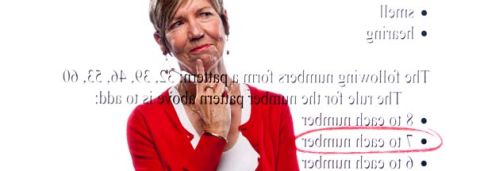A Matter of Assessment
Dr. Nola Aitken's work with Alberta Education examines the importance of the teacher's role in assessing student learning and achievement

What is the most effective way to assess the progress of a student? Who has a stake in the results, and how can exams be redesigned to fairly and accurately evaluate a student’s comprehensive knowledge? These questions and many more were examined in a two-year project, The Alberta Student Assessment Study (ASAS) initiated by Alberta Education. Included in the design and execution was Dr. Nola Aitken of the Faculty of Education.
Dr. Aitken’s experience with assessment and leadership practices extends throughout her career. “I specialized in test development and mathematics, working for Alberta Education for five years assisting teachers with writing exam questions,” she says. After joining the Faculty of Education at the University of Lethbridge in 1992, Dr. Aitken has been involved in the MEd Leadership program and teaches assessment courses at the undergraduate level.
Dr. Aitken notes that the role of examinations has been a defining factor for evaluating quality of education throughout the school system. “Assessment covers all areas; it’s used as a complete evaluation of a student’s knowledge and a guide for teaching,” says Dr. Aitken. “It’s also a means of self-assessment for the student, although there are many stakeholders influenced by the results, from the teachers and parents to schools and their districts.”
The ASAS reported on optimal assessment theory, policies, and practice; educational leadership practices; and professional development.“Data was collected from all the stakeholders through focus groups, interviews and questionnaires,” Dr. Aitken says. “Over 3000 individuals from 20 schools participated in the study.”
The responses from those groups revealed some interesting findings. “There were many factors which emerged once the data was compiled. From student concerns related to perceptions of unfair marking practices, to parents’ concerns with the appropriateness of provincial examinations at the grade three level, recommendations were made to redesign assessments and provide for further professional development for teachers.” Dr. Aitken also pointed out the need for strong administrative leadership. “Clear communication and thorough understandings of the statistical data from school boards and principals promotes confidence and success throughout the education system.”
